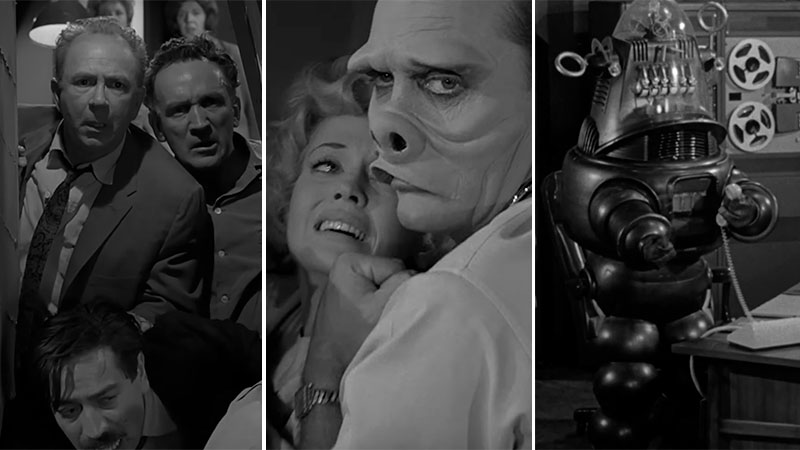
The Twilight Zone has endured as one of the most influential TV shows of all time. The anthology series, created by Rod Serling and originally aired from 1959-1964, specialized in imaginative, science-fiction parables exploring the human condition. More than half a century later, many of these fantastical stories continue to resonate.
While innovations in special effects and production value date some aspects of The Twilight Zone, at their core these tales highlight timeless truths about society, morality, and human nature. Even in far-fetched scenarios involving aliens, robots, and post-apocalyptic worlds, the show uncovered underlying themes still applicable today.
In the following article, we revisit 11 standout episodes from The Twilight Zone that retain their significance in modern times. Despite the age of these stories, their commentary on topics like dystopian dictatorship, social hierarchy, and technology remain strikingly apt. Even six decades later, these episodes provoke us to reflect on prejudice, vanity, and our susceptibility to panic in troubled times.
1. The Brain Center at Whipple’s (Season 5, Episode 33)
In this episode, the themes of automation, corporate greed, and the disregard for the human element in the pursuit of efficiency are explored. These themes are particularly relevant in today’s society, where advancements in technology and automation are rapidly changing the job market.
Many jobs, particularly in manufacturing and customer service, are being replaced by machines and AI, often without adequate consideration for the displaced workers.
The episode serves as a stark reminder of the potential human cost of unchecked technological advancement and corporate greed. It prompts us to consider the balance between efficiency and the value of human labor, a debate that continues to be relevant in the face of ongoing technological advancements.
2. The Monsters Are Due on Maple Street (Season 1, Episode 22)
This episode is a chilling exploration of paranoia and mob mentality. When a small suburban street experiences a series of strange events, the residents quickly turn on each other, suspecting alien invasion. The episode serves as a stark reminder of the dangers of fear and suspicion, themes that are still prevalent in today’s society. This episode’s exploration of paranoia and mob mentality is particularly relevant in the age of social media, where misinformation can spread rapidly, leading to fear and division. For example, the recent panic around COVID-19 saw people hoarding supplies due to fear and misinformation.
3. Eye of the Beholder (Season 2, Episode 6)
This episode tackles the concept of beauty and conformity. A woman undergoes surgery to look like everyone else in a society where conformity is enforced. The twist ending forces us to question our standards of beauty and the pressure to conform, issues that remain relevant today. Today, with the rise of plastic surgery and photo editing apps, the pressure to conform to societal standards of beauty is more prevalent than ever. The episode’s message about individuality and self-acceptance is a necessary counterpoint to these pressures.
4. The Obsolete Man (Season 2, Episode 29)
In a future totalitarian society, a librarian is declared obsolete because books and independent thought are banned. The episode is a powerful commentary on the importance of intellectual freedom and the dangers of censorship, themes that continue to resonate in the digital age. With the rise of digital media and the decline of print, librarians and books are often deemed ‘obsolete’. Yet, the episode reminds us of the importance of intellectual freedom and the dangers of censorship, as seen in attempts to control information on the internet.
5. The Lonely (Season 1, Episode 7)
A convict, sentenced to solitary confinement on a distant asteroid, receives a robot for companionship. The episode explores the themes of loneliness, companionship, and what it means to be human, themes that are increasingly relevant in our technologically advanced society. As AI technology advances and virtual companions become more common, the episode’s exploration of loneliness, companionship, and what it means to be human becomes increasingly relevant. It prompts us to question the nature of our relationships and the role technology plays in our lives.
In conclusion, The Twilight Zone’s enduring relevance is a testament to Rod Serling’s genius. His ability to weave social commentary into compelling narratives continues to captivate audiences, proving that The Twilight Zone is not just a piece of television history, but a timeless mirror reflecting the human condition.
6. It’s a Good Life (Season 3, Episode 8)
A small town lives in fear of a child with godlike powers who can read minds and alter reality. The episode explores the abuse of power and the fear of speaking out, themes that are still pertinent in today’s political climate. The episode’s exploration of power dynamics and fear of speaking out is relevant in today’s political climate, where leaders can misuse their power and silence critics, much like the omnipotent child in the episode.
7. The Shelter (Season 3, Episode 3)
When a nuclear attack warning is issued, a doctor and his family retreat to their bomb shelter, leaving their neighbors to fend for themselves. The episode examines the human instinct for survival and the breakdown of societal norms in times of crisis, themes that are particularly relevant in the wake of recent global events. The COVID-19 pandemic has shown how crises can lead to panic and division, as people scramble for limited resources. The episode’s exploration of survival instinct and societal breakdown is a stark reminder of the need for unity and cooperation in times of crisis.
8. Number 12 Looks Just Like You (Season 5, Episode 17)
In a future society, everyone undergoes an operation at age 19 to become physically attractive. The episode critiques the obsession with physical perfection and the loss of individuality, issues that are increasingly relevant in the age of social media. The obsession with physical perfection and loss of individuality is even more relevant today with the rise of Instagram culture, where users often present idealized versions of themselves, leading to increased pressure to conform to societal standards of beauty.
9. The Masks (Season 5, Episode 25)
A wealthy man forces his greedy family to wear grotesque masks that reflect their true personalities. The episode serves as a timeless reminder of the destructive power of greed and the importance of inner beauty. In today’s society, where wealth and materialism are often glorified, the episode’s critique of greed and emphasis on inner beauty is a timely reminder of the true values that matter.
I Sing the Body Electric (1962) A widower buys an android grandmother for his children, choosing simulated love over human relationships. Our modern sway toward social media over genuine connections gives this one continued poignancy.
10. Walking Distance (Season 1, Episode 5)
A stressed-out executive travels back in time to his childhood hometown, only to realize that you can’t go home again. The episode’s exploration of nostalgia and the pressures of modern life continue to resonate with audiences today. The pressures of modern life, including work stress and burnout, make the episode’s exploration of nostalgia and the longing for simpler times particularly resonant. It serves as a reminder to balance ambition with well-being.
11. I Sing the Body Electric (Season 3, Episode 35)
In this episode, a widower buys an android grandmother for his children, choosing simulated love over human relationships. The concept of substituting human interaction with technology is explored, a theme that is increasingly relevant in today’s digital age.
With the rise of social media, virtual reality, and AI technology, human relationships are often sidelined in favor of digital connections.
The episode serves as a reminder of the importance of genuine human interaction and the potential pitfalls of relying too heavily on technology for companionship.
It prompts us to question the nature of our relationships and the role technology plays in our lives, much like the episode “The Lonely”.
As we continue to advance technologically, the episode’s exploration of simulated love versus human relationships becomes increasingly relevant, serving as a cautionary tale for our increasingly connected world.

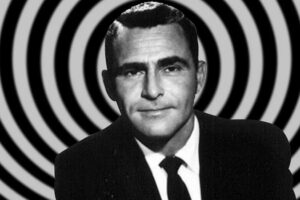
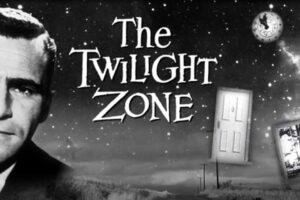
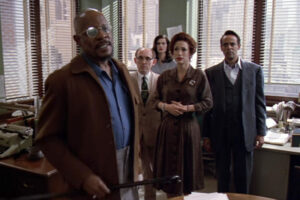



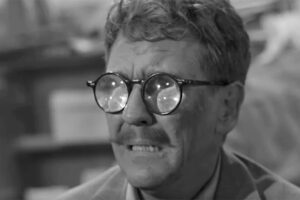


Leave a Reply